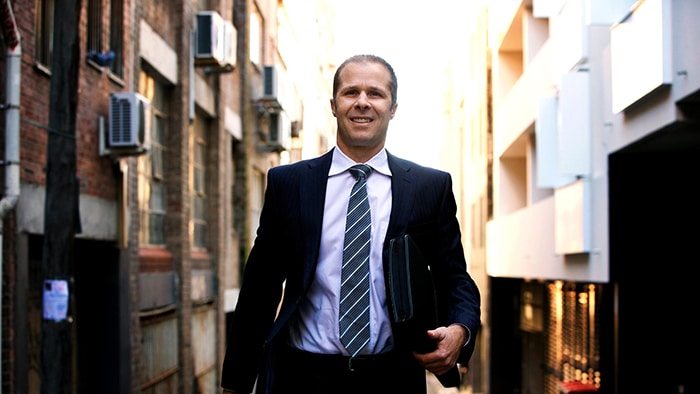Story by Bridget Carter. Published in The Deal by The Australian, in association with Barron’s.

Mark Minchin was working in the private wealth division of Macquarie Group when the global financial crisis struck in 2008. It is a time he will never forget.
“You experienced 10 years of learning in one year,” he says. “There was an enormous number of lessons about dealing with the trauma of losing money and how to best manage through those times, with how people react to the events, and counselling them through that.”
Fast forward to 2017, and the bigger challenge for the chartered accountant-turned certified financial planner is protecting his clients from any similar fallout in the future.
“Every day of the week people call the top of the market, and no one really knows. It can be a bit like the Holy Grail – no one can find it.”
He says some people can pick that a crash is coming but it might be two or three years before it actually happens, and in that time they have lost out on many opportunities.
“I want to make sure I have done everything that is prudent to minimise the damage and calculate the risk they are taking versus the rewards that they get,” Minchin says. “It is about calibrating the level of risk for each client. The appropriate amount of risk they take varies from client to client.”
He quotes the famous saying of canny investor Warren Buffett that “markets can be rational longer than you can be solvent”.
Minchin is the founder, principal adviser and managing partner for the financial planning firm Minchin Moore Private Wealth Advisers, based in Sydney’s Mosman. He started the firm seven years ago and today it manages $925 million, has 14 staff members, including six partners, across three regions and two country offices in NSW.
As well as Macquarie, he has worked for Perpetual and UBS in private wealth. In an earlier life, Minchin was involved in coaching his wife Chantal through her 2008 Beijing Olympics campaign, resulting in her winning bronze in the K4 canoe event.
While his clients are typically all reasonably wealthy, they vary from young upwardly mobile professionals to older people. Some have previously made mistakes, but there are also those who simply do not have the time to manage their personal financial affairs. One is a former stockbroker, for instance.
“Just because someone is a guru on the stocks it doesn’t mean they have a good understanding of tax … Investing is a lot more than stocks,” Minchin says. “If I need a knee operation, I am not going to try to do it myself.”
Securing financial planning advice offers people more certainty and confidence, and a deeper understanding of how their financial affairs should evolve over time.
“People in their forties don’t see what sort of life they are going to have in their fifties and sixties,” Minchin says.
A key part of the job is undertaking financial modelling to offer clients a level of confidence.
Minchin says that when he started his own business in 2010, he did not have to chase clients. Many of them followed him from UBS and Macquarie, where the task of drumming up business was far tougher.
He says the industry has changed significantly since its start in the 1980s as a distribution network for selling life insurance, when the focus was on product sales and trailing commissions. At the other end of the spectrum 30 years ago were stock brokers. Trailing commissions were the usual method of payment for anyone offering advice about investment.
While sections of the industry have been embroiled in controversy about accepting commissions for the sale of a particular wealth product, Minchin says the new generation of advisers approach their work within a different framework.
“What you are finding today is … best interests are at the core,” he says. “Groups like ours make no money out of commissions.”
While 70 per cent of financial planners are employed by banks or insurance companies, Minchin believes that in the future there will be more separation between those selling products and those who only offer advice.
As for the regulation of the sector, Minchin fears that regulators are still not attacking the central issues and have opted for a “Band-Aid fix” in relation to issues of independence and accountability.
New federal laws have the right intentions, he says, but the red tape involved risks adding to the costs for clients.
“The spirit has been well founded, but the key point is that the regulators have lacked the conviction to make the difficult decisions to go to the heart of the problem,” he says.
Bridget Carter
Business journalist with The Australian
Published with permission. This package was a joint project between The Australian and Barron’s. Both Barron’s and The Australian are owned by News Corp. See original article published on Barron’s website here.
Image credit Jane Dempster

